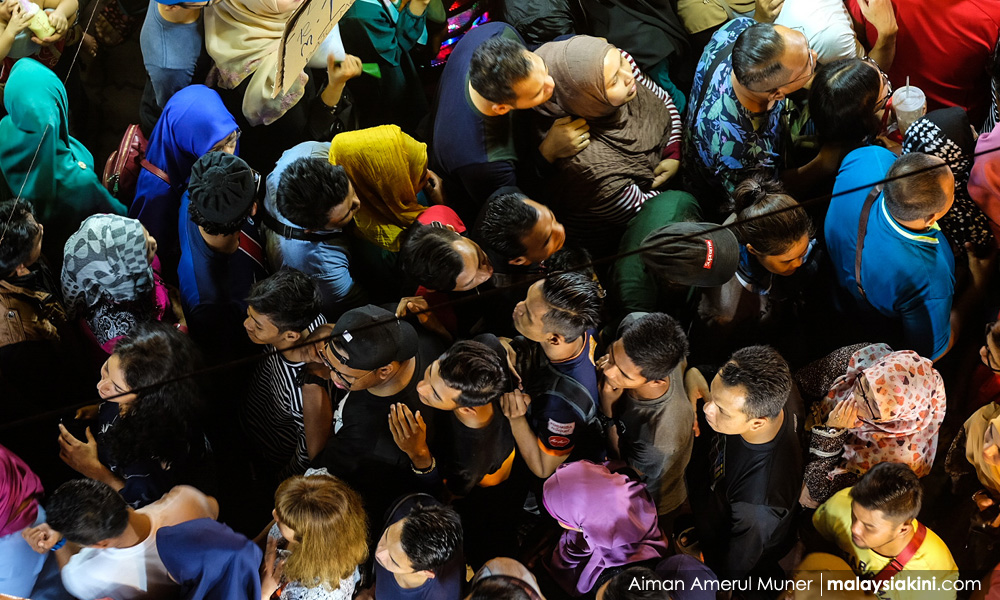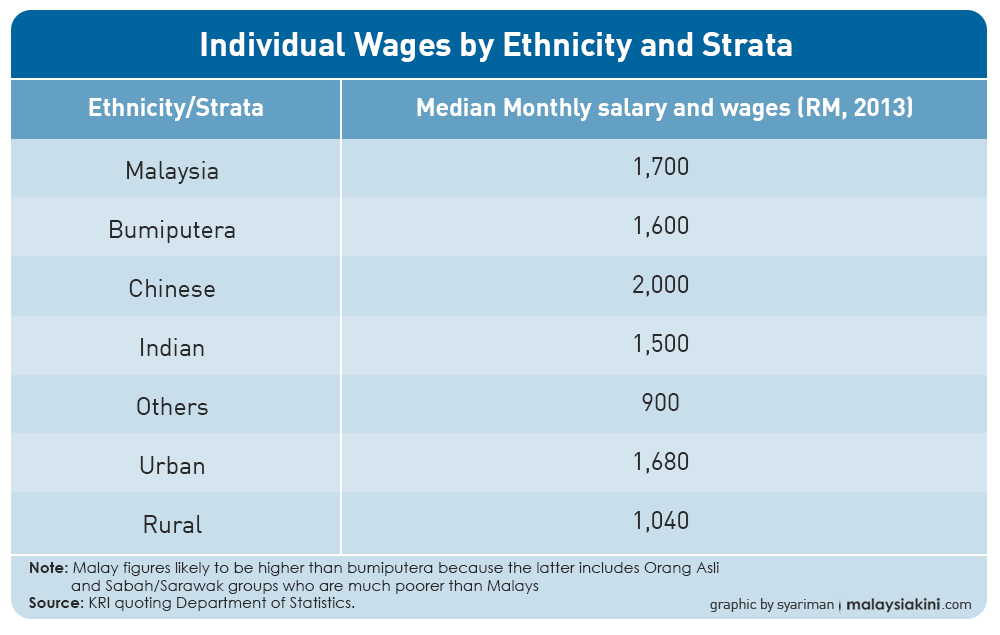
QUESTION TIME | What do Malays want? If you ask Malay right-wing group Perkasa’s Ibrahim Ali, here’s a list of five that he has given as seen from this video uploaded in December 2013, some seven months after the last general elections.
- Don’t want anyone to question the fundamental basis of the Federal Constitution (presumably the part about special privileges for Malays).
- Don’t touch on the sanctity of Islam.
- Don’t belittle and insult the Malay race.
- Don’t denigrate the royalty.
- Fair share of the Malaysian economy.
This follows the infamous question by an Utusan Malaysia’s article, “Apa lagi Cina mahu?” following the May 2013 general elections when Chinese Malaysians were seen to have largely voted against BN. This article questioned the right of the Chinese to vote against BN as if they were not allowed to, and they are ungrateful if they do.
The rhetoric of both indicates that a discussion of what Malays want and need from the government by politicians and people who push Malay rights for a living are likely to be just rhetoric designed to inflame the community and make them support the ruling party by obscuring the real issues at hand.
So what is it that Malays really want? Let’s make an educated guess. But first, let’s start by demolishing Ibrahim’s list of five. Very few people question special privileges for the Malays but say that such help should be extended to all Malaysians who are poor. Help the poor, not the rich - from all communities - and the deserving Malays will be helped as well.
And really no one wants to publicly question Islam’s sanctity but what they don’t want is for their religion and customs to be publicly humiliated by Islamic extremists. Ditto for the Malay race and royalty. These are being used as smokescreens to hide the real issues facing Malays and their aspirations.
Ibrahim’s fifth point, is well, more to the point. But even that it is vague - what does ‘fair share of the economy’ mean and how do you achieve that? However by addressing that question, it will be easier to identify what are the things that Malays want and how well the BN has performed in providing these to them.
When we go right down it, people want more money – everyone, including Malays. So we come to our point one:
1. Malays want better income
To see how well or otherwise this has been achieved, one way is to look at individual income distribution. According to the Khazanah Research Institute’s (KRI) ‘State of Household Report’ dated November 2014, Employees Provident Fund (EPF) data on individual incomes - which includes salary or wages, overtime payments, and bonus - shows that in 2013:
- 96% of active EPF members earn less than RM6,000 a month
- 85% less than RM4,000
- 62% less than RM2,000
That’s a telling figure - 62% of workers earn less than RM2,000 a month. How can many of them live comfortably with such an income, especially when they have children to support? Meantime, the median monthly salaries and wages per month for individuals was RM1,700 in 2013. That means half of all workers get this much or less, KRI explains.
The breakdown by ethnicity and strata is in the table below:

Since 1970, there has been a substantial reduction in household income gaps between Malays and Chinese from over two times (going by median household income) to 6.3% using above figures. Using this measure, the income gap among ethnic groups is no longer the key problem, lack of income is. Not just Malays want more income, everybody does.
And how do we improve incomes? One of the major ways is education. So on to the second point.
2. Malays want quality education
In the rush to increase the number of Malay teachers and to introduce Malay as a medium of instruction, the quality of teaching in national schools has dropped precipitously. There is much anecdotal and other evidence of this. On top of this, lowering educational standards has resulted in a plethora of graduates, but graduates who have become unemployable. The language of commerce in this country is English and the sharp drop in English standards have made many Malay graduates unemployable.
Surveys have shown that even Malay parents want some subjects, such as maths, science and ICT to be taught in English, but Umno politicians have continued to oppose this even as they send their kids to private colleges where the medium of instruction is English for all subjects. English apparently is good enough for their kids but not the kids of their electorate.
What kind of politicians will the Malay community want? Honest ones of course, those that are competent, and if you think about it, not those who play up race and religion to hide their own substantial inadequacies. Why are the politicians who represent them living in the lap of luxury when more than half of the electorate don’t even earn RM1,700 a month? Which brings us to the next point.
3. Malays want honest and competent leaders
This is very rare commodity indeed. But if this is not available, expect serious leakages from the economy, difficulty in bridging income and wealth gaps as patronage and corruption give income to the well-to-do and the public pays more and more for basic services to line the pockets of rich businessmen and rent seekers.
Has privatisation ever resulted in lower costs of services? No. Do expensive building projects and dubious overpriced infrastructure projects results in benefit for the Malays? Yes, some through rent-seeking activities but for the vast majority of Malays, no.
This list of three more targeted wants and needs addresses the true aspiration of the Malay community much more than Ibrahim’s loud, inflammatory list of five. And if one looks at the aspirations, it is why everyone but the corrupt and unpatriotic want it too.
At the end of the day everybody - all Malaysians - wants good government and with the resources we have, that is more than enough to solve all our problems. How come we have not?
P GUNASEGARAM says many complex problems have simple solutions. Email: t.p.guna@gmail.com. -Mkini



No comments:
Post a Comment
Note: Only a member of this blog may post a comment.